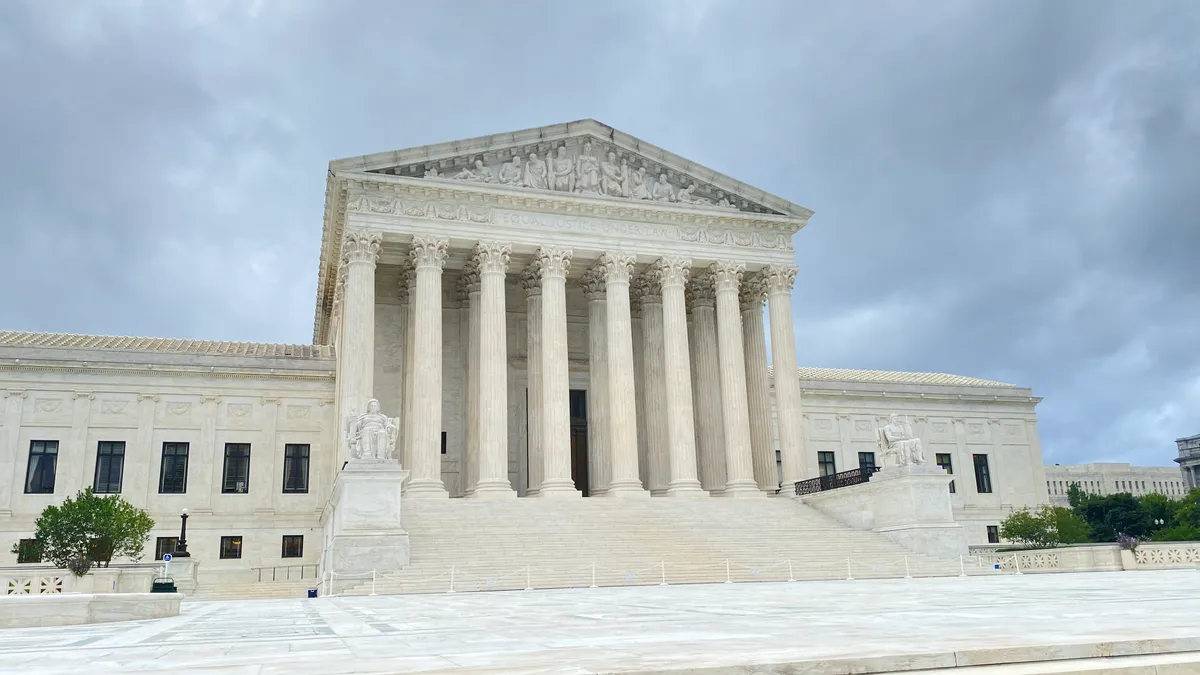Dive Brief:
- Companies will need to strengthen their foreign trademark rights and enforcement efforts now that the U.S. Supreme Court has narrowed the way trademark protections under the Lanham Act are applied.
- The court in Abitron v. Hetronic agreed with lower courts that Lanham can apply trademark infringement penalties on foreign companies, even though the law isn’t extraterritorial, if their infringing activities are used “in commerce” in the United States. If the infringement has an impact in the U.S. but not through “use in commerce,” though, the law doesn’t apply.
- “One possible reading of that opinion is that the Lanham Act can only apply to allegedly infringing sales of goods or services made directly in the United States by the manufacturer, seller, or service provider,” Mark Sommers, a partner at Finnegan, told Legal Dive in an email comment. “If that is the position adopted by lower courts, then companies will need to strengthen their foreign rights to ensure they can prevent infringing trademark uses abroad.”
Dive Insight:
The Abitron decision could open the door to foreign companies leveraging U.S. companies’ trademarks without penalty as long as use of the trademark is outside the U.S., even if that use causes market confusion in the U.S.
Although the decision by the top court was unanimous, the court split 5-4 on whether the law should be so narrowly limited to just foreign-company use of the trademark in commerce in the U.S.
In a separate concurring opinion, Associate Justice Sonia Sotomayor said the point of trademark protections is to prevent market confusion; if the use of a trademark occurs outside the U.S. but causes market confusion in the U.S., Lanham should apply, as the federal government argued.
“The statute’s focus is protection against consumer confusion,” said Sotomayor, whose opinion was joined by Chief Justice John Roberts and associate justices Elena Kagan and Amy Coney Barrett, so “the statute covers foreign infringement activities if there is a likelihood of consumer confusion in the United States.”
In his majority opinion, Associate Justice Samuel Alito said market confusion isn’t the basis of trademark protections; it’s an outgrowth of infringement.
“Confusion is not a separate requirement,” he said, “rather, it is simply a necessary characteristic of an offending use.”
In the case, U.S.-based Hetronic sued a former European distributor of its products for infringement when the distributor continued to sell products under its brand even though the products weren’t made by the company.
The U.S. Court of Appeals for the Tenth Circuit awarded Hetronic all of the sales revenue the distributor made on the products using the trademarked branding, even though 97% of the sales were outside the U.S. to buyers outside the U.S., on the grounds that all of the sales hurt the company.
The justices on the supreme court agreed the appeals court went too far by penalizing the distributor for all of the sales; the more appropriate measure, they agreed, is the far-smaller amount of sales that touched on the U.S.
The difference among the justices was in determining whether to apply the law to that smaller amount based on use of the trademark in commerce in the U.S. or on the impact the trademark use had on the company as a result of the market confusion it caused in the U.S.
By the slim 5-4 majority, the trademark use in commerce in the U.S. won out.











